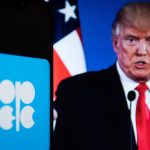Last month, Nigeria emerged as a beacon of stability in the tumultuous world of oil production.
As the UAE and Angola curtailed their outputs, Nigeria surged forward, boosting its crude oil supply by 50,000 barrels per day (bpd) to counterbalance the Organization of Petroleum Exporting Countries (OPEC) quota deficit.
Join our WhatsApp ChannelIndustry analysts, Nigerian Oil Minister, Samuel Adesanya, emphasized, “Our increased output aligns with our negotiated quota, bolstering OPEC’s efforts while contributing positively to the market amidst challenges faced by our counterparts.”
Meanwhile, the UAE made the most reduction, slashing 70,000 bpd, but still maintaining output above its quota, causing discussions regarding adherence to production limits.
Angola, in the midst of its exit from OPEC, faced a decline in production, fueling concerns about the impact of disputes over quotas on global oil dynamics.
Amidst this, Iraq faces a sizable reduction target, while OPEC+ anticipates additional cuts of 900,000 bpd this month.
The International Energy Agency (IEA) projects a more conservative estimate of *around*c 500,000 bpd in actual reductions.
Experts, however, express skepticism about full compliance with the new cuts. “The current supply-demand dynamics paint a complex picture,” remarked energy market analyst, Dr. Elena Ramirez. “Despite the efforts, balancing production with demand remains a considerable challenge, especially amidst slower global fuel demand growth.”
As OPEC+ gears up for upcoming monitoring meetings and physical gatherings, the future of oil production and its impact on global markets remains uncertain, with stakeholders closely observing the intricate dance between supply, demand, and geopolitical factors.
Emmanuel Ochayi is a journalist. He is a graduate of the University of Lagos, School of first choice and the nations pride. Emmanuel is keen on exploring writing angles in different areas, including Business, climate change, politics, Education, and others.

















Follow Us